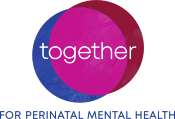Rachel Brnjas
Tapestry Counselling & Consulting
Tapestrycc.com
When I thought about the “resume” I brought into mothering: many years working at summer camps, nannying, being the eldest child and cousin on both sides of my family, supporting families in the community… I believed I was “qualified” for the job. I’d heard some friends who had experienced birth trauma, challenges with breastfeeding… but I’m sure I could overcome these things, right? I imagined I could resume my life, continuing to do the things I loved, only with a baby tied around me. Having a baby wouldn’t need to change me.
When I brought my first child home from the hospital after a whirlwind birthing experience (two weeks early, the day after I started maternity leave and only spending 6 hrs in the hospital), I couldn’t stop playing the birth over and over in my head. Every time I closed my eyes, I felt like I heard my baby crying only to discover him quietly sleeping next to me. I could hardly sit, my breasts were dripping and tender, my eyes wouldn’t stop crying. I was completely disoriented.
When will I feel like myself again? Perhaps at 6 weeks? Or maybe after the fourth trimester?
I clung to these markers of time with the hope that they would bring the clarity and reorientation that I so desperately needed. But when these times came, I didn’t feel the relief I’d been hoping for. The voices of anxiety and shame felt loud and so, in a moment of desperation, I sought therapy. And while having a soft place to land felt helpful, it didn’t help me make sense of WHY I was feeling the way I was or how I might find myself again.
It was later, much later, after having my second child and once again navigating another disorienting postpartum experience that I started to find resources and language to understand what I was experiencing. I discovered the work of Postpartum Support International (PSI) and I started seeing a postpartum therapist. And slowly, I started to a find a way back to myself.
Part of feeling reoriented was a passion that arose within me to make sure we have more perinatal mental health resources in our community; the kind of resources that I needed but struggled to find. Even though I’d been working as a social worker with parents in the perinatal period, I was missing some education and specialized training to really come alongside parents. So, I leaned in and did my Maternal Mental Health certificate through PSI and in June of 2021 launched Tapestry Counselling & Consulting.
I immediately loved holding space for parents navigating the transition into parenthood: supporting them with managing the voices of anxiety, of depression, of guilt, of rage…
But it still felt like something was missing from this work. Why were an increasing number of parents feeling so disoriented? And why did I also sense the tremendous potential within this disorientation for healing and growth? How could these things both be true?
This is when I discovered the concept matrescence. We didn’t just birth our child(ren); as parents, we undergo our own birthing experience.
Matrescence sounds like adolescence for a reason. It’s a time of developmental shifts and changing hormones, relationships, bodies, identities… kind of like when we went through adolescence. In our cultural context where the parenting pressures are unrealistic at best and oppressive in their most extreme, it’s easy to feel like there’s something wrong with us when we struggle through this transition into parenthood.
Having a framework like matrescence reminds us we are changing and while change is uncomfortable, it doesn’t mean we aren’t a great or capable parent. It means we ALL need support, community, and particular tools and resources to reorient ourselves. And while all parents navigate matrescence, it will look unique for each of us.
A matrescence-informed lens matters deeply to our conversations about perinatal mental health because it gives us the big picture to better understand why a parent might be feeling disoriented. It is a paradigm that makes space for duality: BOTH & AND.
Parenthood is beautiful and hard.
Parenthood is monotonous and can provide deep meaning.
Parenthood is exhausting and can feel so energizing and inspiring.
Parenthood is thankless and deeply rewarding.
Research is showing that conversations about matrescence lower rates of postpartum anxiety and depression.
I recently completely a 6 month matrescence apprenticeship program called “The Village” with a group of practitioners from around the world who are fiercely committed to maternal wellbeing. I’ve been weaving matrescence education and tools into my individual clinical work, my Wholehearted Mothering group (https://tapestrycc.com/wholehearted-mothering) and groups I run in the community. Parents have expressed excitement and deep validation by learning about this concept. It’s helped to “connect the dots” to better understand why they are feeling the way they are.
I wish I had known about matresence years ago. I believe this framework, used in conjunction with other therapeutic tools (especially ones that include our bodies) can help us to better support the wellness -and even the flourishing- of parents in our community.
